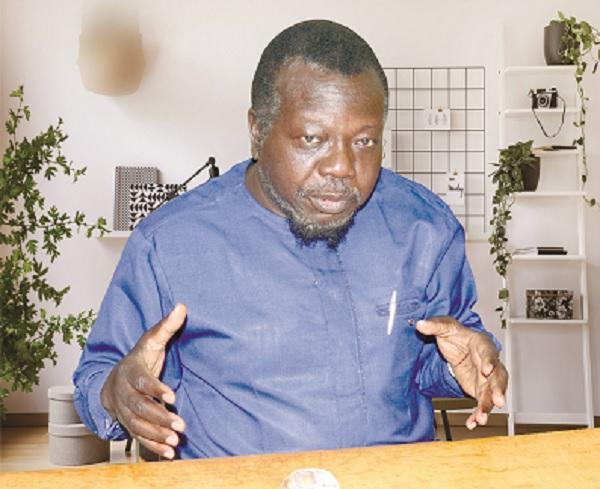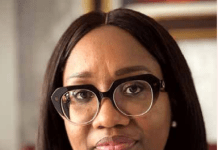
Professor Adeboye Adejare, is a professor of pharmaceutical sciences at the Philadelphia College of Pharmacy (PCP), the oldest of such colleges in North America. He is a globally acclaimed researcher in the areas of drug discovery and targeting, the mechanisms of neurodegeneration, the chemistry of fluoroaromatic compounds, as well as pharmaceutical profiling. In addition to several publications, patents and recognitions as well as funding from the USA National Institutes of Health (NIH) and the pharmaceutical industry, the celebrated drug expert has edited several textbooks, the most recent of which is the 23rd (current) edition of Remington: The Science and Practice of Pharmacy, for which he is the editor-in-chief. He is the first non-white to accomplish such a feat.
A two-time recipient of the Carnegie African Diaspora Fellowship Programme (CADFP) awards, Adejare is also a founding member of the Nigerian Association of Pharmacists and Pharmaceutical Scientists in the Americas (NAPPSA). In this interview with OLA ABODERIN during a recent visit to Pharmanews office in Lagos, Adejare recounts his journey to becoming a record-breaking pharmaceutical scientist. He also recommends steps that can help transform the Nigerian pharma sector and make it more globally competitive. Excerpts:
Could you give us some details about your background?
I was born in Ede but spent my early years in Gbogan, both in Osun State. I came to Lagos around 1968 and that was where I finished my primary school. I attended Igbobi College from 1970 to 1975 and left Nigeria, soon after.
I am one of the few people that School Cert didn’t have an impact on their career. I took the GCE before the School Cert and I did well and was offered admission to a US university. By the time the School Cert results were released, I was already in the US. Of course, I still had Grade 1 but it wasn’t of any use by then.
Why did you decide to study in the US?
You know, as I said, I went to Igbobi College and most of us were very competitive. That’s why a good number of my former classmates are doing very well now. For instance, those who studied Law, many of them are having the SAN title (Senior Advocate of Nigeria) now. So, we had a very high drive and it was certain that we were bound to go beyond School Cert.
Moreover, at that time, many of us were thinking of going overseas. So all we had to do was check for the schools we wanted. I was lucky enough to be linked to a school that not only accepted my qualifications but also offered me significant financial assistantship. Without the assistantship, I would not have been able to pursue the offer.
You studied Chemistry as an undergraduate. At what point did you veer into Pharmacy?
While growing up, I knew I wanted to do something that had to do with chemicals, but I wasn’t sure of the course to study. I wanted to do Chemical Engineering. I also thought of Medicine and Pharmacy. These three have a major thing in common – Chemistry.
I thought of it that if I wanted to be a chemical engineer, I needed to go to a factory where chemical engineers worked. So, I went to a Procter and Gamble factory in Iowa City, Iowa, around 1977. There, I saw the moving parts and heard all the noise, and I said, no, this is not for me. So, that was the end of that.
I got admission into a pharmacy school but did not pursue it. I also got admission to a medical school but declined the offer. Why so? I considered that, to be a physician or pharmacist was great but I have never been interested in treating one patient at a time. What brings me joy is to be able to lead efforts that can result in drugs that thousands of people can benefit from. And a major way to do that is through Chemistry, especially Organic Chemistry and drug discovery. Simply put, I was interested in understanding molecules and how to modify them for the good of humanity.
I got my bachelor’s degree in Chemistry at the University of Iowa. Thereafter, I was offered admission to do a master’s degree in Organic Chemistry in the school. All of a sudden, I was on full assistantship – meaning that I no longer paid tuition; instead, I was being paid.
My master’s thesis was on isolation of desired compounds. It happened that a botanist had done a study on some ants that attacked certain trees, destroying their leaves in the process; but they avoided some other trees that were close to the ones being attacked. From this, we created a hypothesis that there must be something – perhaps a certain compound (or compounds) – that the ants had learnt to avoid in the untouched trees, either because it was toxic to them or to their colonies. So, the goal was to try to identify such chemical compound(s). And through fractionation, we were able to identify two compounds: caryophyllene and caryophyllene epoxide.
When I was almost done with my master’s thesis, I decided that I was going to do a PhD at one of the ten best institutions in the United States. So, I applied to The Ohio State University (OSU) to study Medicinal Chemistry and was admitted. That was my reason for studying Chemistry in the first place. As it turned out, Medicinal Chemistry was being offered in the College of Pharmacy. That was my “leap” into pharmacy school.
After my PhD, my advisor asked me what I wanted to do next and I said I wanted to go to the National Institute of Health (NIH) and be there as a Fellow. He agreed to this, and I eventually got an offer in 1985. However being a government institution, hiring was meant to commence in October and we were still in March. So, between March and October, my advisor retained me at OSU as a postdoc (postdoctoral researcher).
I resumed at NIH in Washington DC, in October, and stayed there for three years. Thereafter, I started my academic career, beginning as assistant professor and moving up to associate professor and eventually a full professor.
What are your present research engagements?
After leaving NIH in 1989, I began my own independent research. By then, I was beginning to think about the diseases of the future. I had observed then that mankind was starting to live longer – which was good; but the not-so-good news was that the diseases associated with ageing were increasing. That was what got me into research on Alzheimer’s disease.
There is a set of receptors called NMDA (N-methyl D-aspartate) receptors. I decided to study these receptors – contrary to the direction of most other researchers at that time – and I hypothesised that it would be a way to develop drugs to treat Alzheimer’s disease. Fast-forward to 30 years later, Namenda (memantine), an NMDA antagonist, became FDA-approved for the treatment of the disease. That product was based on the outcome of the earlier hypothesis on NMDA.
I am still working on NMDA receptors, as they have been established to play key roles in neurodegeneration and even in neuropathic pain. I believe that there are ways to modify the molecules so that they can reach the receptors that are involved in pain.
Right now, in the US, one of the biggest epidemics is the opioid overdose crisis, leading to massive fatalities. I am looking at development of drugs for pain that are non-narcotic. We believe that NMDA receptors can also help with this, and we are actively working in that area.
Also, soon after I obtained my PhD, I resolved that I wouldn’t delve into cancer research. However, around 2005, some clinicians from the University of Pennsylvania came to me. They explained that they had a molecule, which they did not know how to modify. They are great clinicians, but aren’t chemists. So, we collaborated and ended up creating new compounds which are patentable, and which we actually patented. Interestingly, the new compounds proved to be even more effective than the original compound. So, that brought me into the anti-cancer world.
I remember also that I used to avoid going into the field of natural products or plant medicine. However, five years ago, I began to collaborate with scientists in Nigeria and many of the research efforts in Nigeria are based on natural products. So, my research efforts are increasingly tilting in that direction – especially as they can serve as drug leads, which can be eventually modified to obtain drugs.
Speaking of Nigerian researchers, let me quickly add here that I am glad that I have been able to assist and work with as many of them as I can. I have had many lecturers come to my lab from Nigeria and they spend a year or two before returning to Nigeria.
On that note, I am particularly excited that, currently, there is a Fulani lady from the University of Ibadan doing research in my lab. That gives me great joy because it is usually believed that southerners dominate such endeavours. But we’re increasingly having northerners who are changing the narrative.
What would you describe as the most significant highlight of your career so far?
The greatest highlight of my career so far is being editor-in-chief of Remington (23rd edition), which was published in November 2020. This is a publication that is over 100 years old, and there is an editor for each volume. I am the first non-white to occupy the positon. The reason that is significant is because it is a global publication. So, I was able to compile something that could be read across the world.
What do you think led to this historic appointment?
In the US, there are indexes that everyone keeps track of. They look at your publication record. I have over 50 publications – on primary findings, and not just reviews. I had also edited a major pharmaceutical publication before then. Moreover, I had been an editor in the previous edition of Remington, where I edited a section. All these considerations made me uniquely qualified for the appointment.
Who appoints the editor-in-chief for each edition?
The Philadelphia College of Pharmacy, which is the oldest faculty of pharmacy in North America, does it. The publication actually originated from there, and the dean of the faculty decides the most qualified person for the position.
What did your work entail while holding the position?
First, I still hold the position. I was author of three chapters for the edition. I was also the editor for the Pharmaceutical Chemistry section. As such, I made sure that all latest concepts in pharmaceutical chemistry were covered. Now, as the overall editor or editor-in-chief of the edition, I made sure that all the appropriate topics were covered to an acceptable depth.
Actually, there were up to eight or nine editors, from Asia, Europe and North America, handling the various sections of the book. And coordinating all that work was my job. Essentially, I was responsible for everything that went into the publication. This meant that I had to read and approve every chapter before it could become a part of the edition. I am still in charge of the brand until the next edition which may be in a couple of years.
From your knowledge of the Nigerian pharmaceutical industry, how would you assess it?
I think the pharmaceutical industry has continued to grow over the years. At the beginning, it was just about importing all the drugs. Afterwards, it was mostly active pharmaceutical ingredients (APIs) and excipients that were imported and companies could make the drugs in the country. Right now, however, the industry is obviously undergoing a major transformation. There are several companies in operation, including those involved in or thinking about API manufacturing. Also, there are companies working on going into vaccine production. The implication of these efforts is that the pharmaceutical industry in Nigeria has very bright prospects.
However, one area that needs major attention is the fact that most of the drugs produced in the country are those already researched and developed in other countries. The Nigeria pharmaceutical industry has to step up to drug discovery and development. This of course, will involve clinical trials, which Nigeria is very much ripe for. South Africa is presently taking the lead in clinical trials. Many companies that want to do clinical trials – for instance, in HIV – go to South Africa. Similarly, Nigeria is ripe for Phases 1, 2 and 3 clinical trials in various diseases, from infections to chronic disorders like diabetes. So, let’s start doing something on that.
Another aspect requiring attention involves the frequent claims of finding cures to different diseases, including COVID-19, without putting such claims through scientific rigour. This needs to be improved upon.
I also keep asking myself – what stops us from discovering and developing drugs in Nigeria and selling in America? The challenge, sometimes, is that we are not making our efforts attractive enough to potential investors, especially foreign sponsors. For instance, while it’s necessary to manufacture drugs dealing with malaria or sickle cell, the fact remains that not many people outside of Nigeria or Africa are battling such conditions. But think of a condition like pain; it is a condition that is felt globally. Therefore, it is much easier for research efforts in this direction to attract external capital.
Even in the US, the drug discovery model has changed quite a lot. Many years ago, it was the big companies that discovered, developed and marketed drugs. These days, however, big companies are no longer interested in combining research and development. What they do is just the development, while they leave the smaller companies to do the discovery. This is cheaper for them, as they do not have to spend money on recruiting and maintaining several research personnel. They simply wait for the smaller companies to do the research and discovery, which they eventually buy at premium price.
Players in the Nigerian industry can learn from this and also do their best to follow the guidelines that attract the big investors. First, drug discovery must undergo rigorous scientific procedures. Second, when the discovery is done, the next step is not to go to the media; it is to go get a patent. The minute you go to the media to announce it, you’ve lost your patent. After the patenting, the clinical trials can begin.
Again, this is where the issue of deciding area of drug discovery research and development plays an important role. For some products, the clinical trials take very long time to complete; but for others – those dealing with pain, for example – the time is short; you can actually know within a week whether or not the drug is working. Indeed, I believe there is nothing stopping the next biggest drug on pain from coming out of Nigeria.











I nominate Ikaraoha Mac Donald from unizik
I nominate Ikaraoha Mac Donald from unizik
I nominate Ikaraoha Mac Donald from unizik
I nominate Ikaraoha Mac Donald from unizik